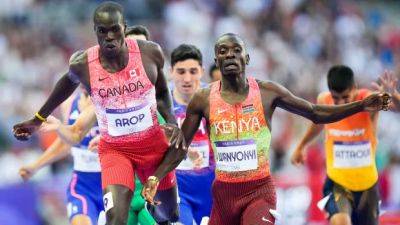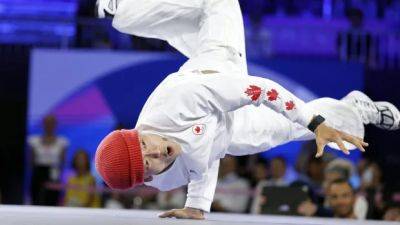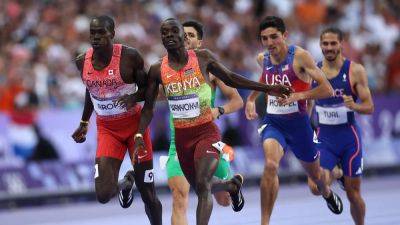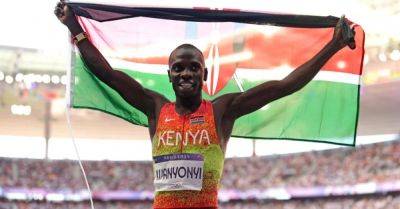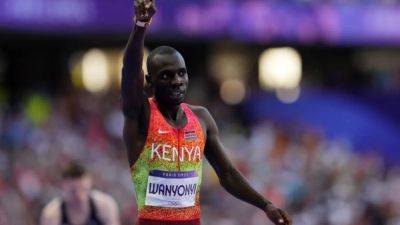Canadian world champion Marco Arop faces stiff competition in Olympic men's 800
The men's 800-metre race promises to be a doozy.
There's Canada's Marco Arop, the reigning world champion. There's Algeria's Djamel Sedjati, the fastest man in the world this season. And there's Kenya's Emmanuel Wanyonyi, second-fastest to both Arop at worlds and Sedjati this season.
"People say the 800's like Russian roulette," said Canadian Paralympian Nate Riech, who holds the T38 world record in the distance.
"If you make two mistakes it's not like 100, the 400, where you almost can't really make a mistake and then you're really in trouble or you just have to send it. In the 800 you can make a mistake or two, but if you get boxed in or you're on the outside running in lane two or lane three, that can really hurt you with 100 metres to go.
"And so I think that's the beautiful thing about the 800 because no one knows."
WATCH | Arop's pursuit of greatness:
The competition at the Paris Olympics is shaping up to be no different. Each of Arop, Sedjati and Wanyonyi bring their own strengths and weaknesses to the table, and they've all held the world lead at various points this season.
Arop, the 25-year-old who lives in Edmonton, enters the race somewhat under the radar. His world-leading time only stood for a few hours before Wanyonyi broke it in April.
But the Olympics provide a different test. Those times were recorded at a Diamond League event in July, where competitors race just once. At the Olympics, you must get through heats and semifinals before lining up for a medal.
"I think everyone sees these flashy fast times and to be honest with you, they're impressive, but at the end of the day, if you don't have the legs after two rounds then it doesn't really matter how fast you can run for one race," Riech said.
The



